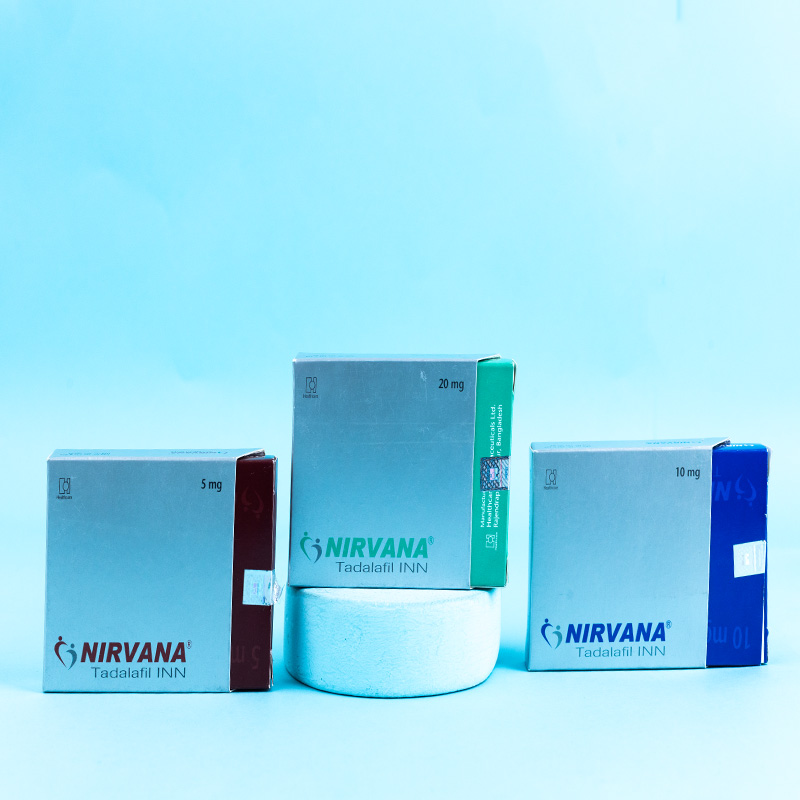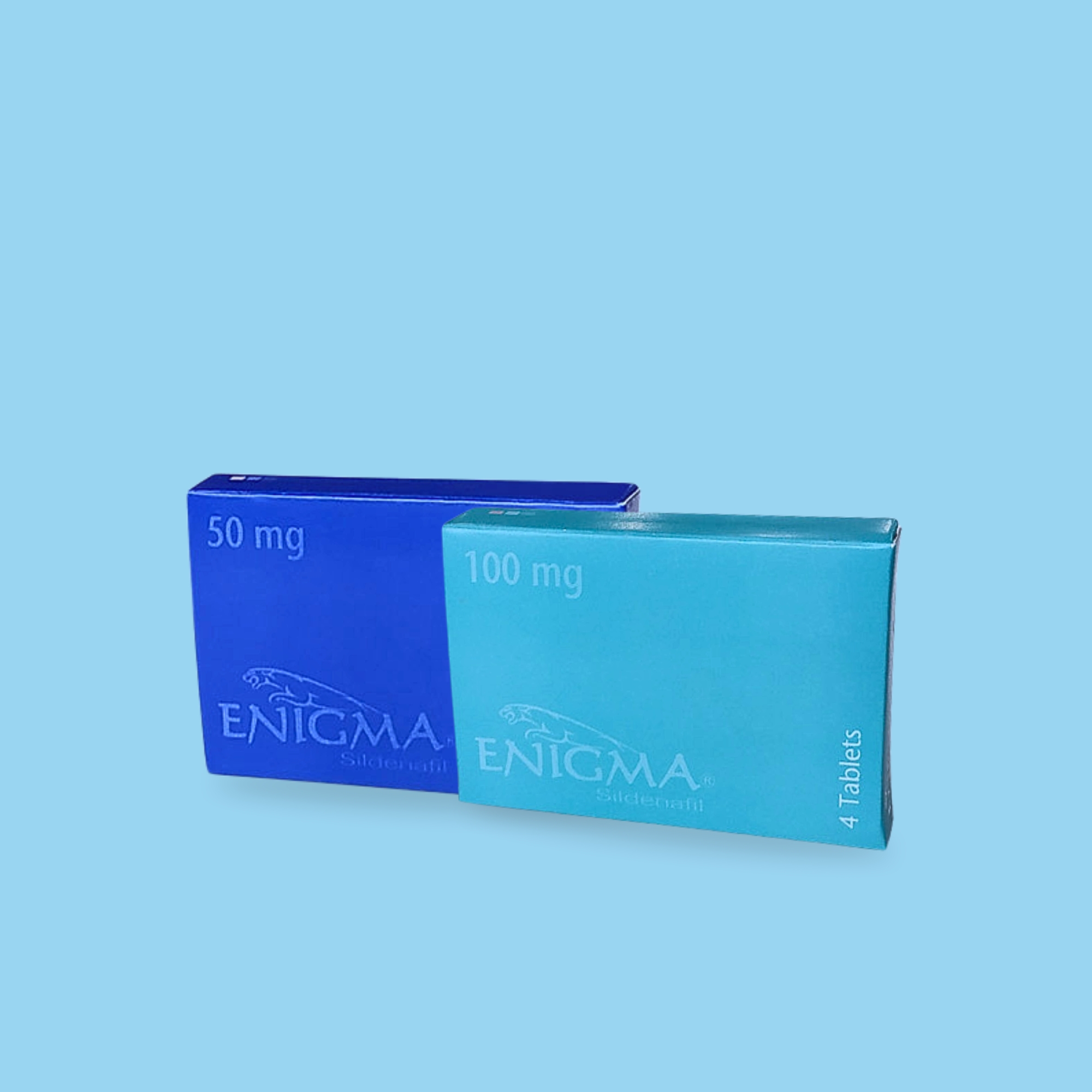During sexual stimulation, nitric oxide is released in the corpus cavernosum. This nitric oxide activates guanylate cyclase, which stimulates the synthesis of cyclic guanosine monophosphate (cGMP) in smooth muscle. cGMP causes smooth muscle relaxation and increases blood flow, leading to penile erection. Tadalafil inhibits phosphodiesterase type 5 (PDE5), an enzyme responsible for the degradation of cGMP in the corpus cavernosum. By inhibiting PDE5, tadalafil increases the levels of cGMP, resulting in improved erectile function. It is important to note that tadalafil at recommended doses has no effect in the absence of sexual stimulation.

Nirvana® is indicated for the treatment of erectile dysfunction (ED) and benign prostatic hyperplasia (BPH).

For erectile dysfunction (ED), the recommended dose is 10 mg as needed before anticipated sexual activity. The dose may be increased to 20 mg or decreased to 5 mg based on efficacy and tolerability. It should not be taken more than once per day. For once-daily use in ED, a 2.5 mg dose is recommended, regardless of the timing of sexual activity. If needed, the dose may be increased to 5 mg based on efficacy and tolerability. For benign prostatic hyperplasia (BPH), a 5 mg dose should be taken at approximately the same time every day. In cases where both ED and BPH need to be treated, a 5 mg dose taken daily at the same time is recommended.

Nirvana® should not be used in patients who are taking nitrates, as the combination can cause a significant drop in blood pressure. It is also contraindicated in individuals with hypersensitivity to any of its ingredients.

The most common side effects associated with Nirvana® include headache, dyspepsia, back pain, myalgia, nasal congestion, and flushing. Some patients may experience fatigue, facial swelling, or general body pain. Cardiovascular effects such as angina pectoris, hypotension, chest pain, myocardial infarction, postural hypotension, palpitations, syncope, and tachycardia have been reported. Digestive system-related adverse effects include abnormal liver function, dry mouth, dysphagia, esophagitis, gastritis, increased GGTP levels, loose stools, nausea, upper abdominal pain, vomiting, gastroesophageal reflux, and, in rare cases, hemorrhoidal or rectal hemorrhage. Some patients may experience musculoskeletal issues like arthralgia and neck pain. Nervous system-related side effects include dizziness, hypesthesia, insomnia, paresthesia, somnolence, and vertigo. Renal impairment has also been observed in some cases. Respiratory system-related side effects include dyspnea, epistaxis, and pharyngitis. Skin-related reactions such as pruritus, rash, and excessive sweating have been reported. Ophthalmologic side effects may include blurred vision, changes in color perception, conjunctivitis (including conjunctival hyperemia), eye pain, increased lacrimation, and swelling of the eyelids. In some cases, otologic issues such as sudden hearing loss and tinnitus may occur. Urogenital side effects include increased or spontaneous penile erection.

Nirvana® should not be used in combination with nitrates, as it can cause severe hypotension. It may interact with alpha-blockers, antihypertensive drugs, ketoconazole, ritonavir, rifampin, and alcohol, potentially leading to increased side effects or altered drug efficacy.

Caution should be exercised in patients with cardiovascular disorders, those taking nitrates, alpha-blockers, antihypertensive drugs, CYP3A4 inhibitors, or alcohol. Patients predisposed to priapism, those with hereditary retinal or hearing disorders, and individuals with renal or hepatic impairment should also use this medication with caution.

Nirvana® is not recommended for use in women or pediatric patients. For geriatric patients above 65 years old, no dose adjustment is required. In cases of hepatic impairment, patients with mild to moderate liver dysfunction may require dosage adjustments, but it should not exceed 10 mg. The use of Nirvana® in patients with severe hepatic impairment is not recommended. For patients with renal impairment, those with a creatinine clearance of 30-50 ml/min should start with a 5 mg dose, not exceeding 10 mg every 48 hours. For patients with creatinine clearance below 30 ml/min or those undergoing hemodialysis, the maximum recommended dose is 5 mg, taken no more than once every 72 hours.

Nirvana® should be stored at a temperature not exceeding 30°C in a dry place, protected from light and moisture. It should be kept out of the reach of children.






